China-U.S. in 2022:A Year of Crises or Cooperation
-
 Da WeiDirector at Center for International Strategy and Security
Da WeiDirector at Center for International Strategy and SecurityIt's inaccurate to describe China-US relations in 2021 as "pitch dark". At the very least, China-US ties saw an pause to the "free-fall" trajectory over the previous three years, and began oscillating at a low level.
What is worth vigilance is the relationship's current "state of drifting". The pattern and nature of bilateral ties may evolve negatively while "drifting", which may not necessarily be in any party's interest.
The Biden administration is well-prepared at the level of strategic design, with the core idea of "strategic competition" and the hope for "competitive co-existence" with China. But Biden overestimated his administration’s capabilities to implement its strategy, and underestimated the extent of China-US mutual dependence and that between China and third parties. The Biden administration is trapped to some extent in the domestic issues like the COVID and international challenges like Afghanistan, while other countries are reluctant to choose side between the US and China. Together such overestimation and underestimation have compromised the outcome of US strategy.
It is reasonable for China to refuse defining China-US relations with the term of “strategic competition”. Yet in the intermediate or long term, China needs to better clarify the strategic goals and orientation of the relationship it deems as both "desirable" and "achievable". At present, China appears to be "wavering" between "pingshi" diplomacy, a latest Chinese jargon emphasizing an equal footing in dealing with Western powers, and "fighting without breaking the relationship", and has yet to do enough in guiding China-US relations.
China-US ties could enter a stage of relative stability in 2022. Midterm elections in the US and the Communist Party of China's 20th National Congress will see both countries concentrate more on domestic affairs. This certainly makes it more difficult for either side to make policy adjustment, but also means neither side will be in favor of any significant accident or drastic worsening in China-US relations. There still is room in the first half of year for both sides to do something to stabilize ties.
-
 An GangAdjunct Fellow, Center for International Security and Strategy, Tsinghua University
An GangAdjunct Fellow, Center for International Security and Strategy, Tsinghua UniversityThe previous common strategic foundation between China and the US has collapsed, and a new one won't be available in the short term, as both sides are talking past each other, and acting in their own ways. The US side is determined to engage in long-term strategic competition with China, while the Chinese side is fighting resolutely against US words and deeds challenging its interests and dignity. Although the virtual meeting between the two countries' leaders temporarily eased tensions, the prospect for improving China-US relations remains grim, with the "positive list" too short, and the "negative list" too long.
Both China and the US have significant domestic concerns on their respective political agenda, the room for adjustments and flexibility is thus limited for both, and struggle may get more fierce in 2022. Both sides may need to actually accept that the competitive aspect will dominate bilateral relations for a long time, and plan and arrange specific interactive moves accordingly. Ranking Chinese officials proposed at the end of 2021 to build "new paradigm" and "new strategic framework", and the two sides should explore together via dialogue, which in itself will help stabilize bilateral ties. A fresh strategic framework is indeed necessary between the two countries, which may take one or two decades and even more to build. In the process, no matter how bad the relations get, contact should never be cut off; no matter how they de-couple, people-to-people exchanges should never be stopped.
-
 Zhou BoSenior Fellow of Center for International Security and Strategy Tsinghua University and China Forum Expert
Zhou BoSenior Fellow of Center for International Security and Strategy Tsinghua University and China Forum ExpertLike it or not, this is the beginning of a new Cold War. This "new" one differs from the previous Cold War in many ways, but the process of escalating China-US competition will prove irreversible. The US focusing on the "Indo-Pacific" is an inevitable outcome of the US global retrenchment caused by its shrinking global influence and directly targeting China.
Different from the US-Soviet Union Cold War, China-US competition, first of all, is not global competition, but "regional competition" (In Indo-Pacific at the macro sense, specifically on China's periphery). Secondly, it isn't competition between two blocs, but one-on-one competition, neither US allies nor China's partners will get involved easily. Thirdly, it has no division of spheres of influence. US military ships and aircraft frequently come to the Taiwan Strait, or South China Sea in a provoking manner. There isn’t even buffer zone between the two sides, so the risk of conflicts is higher than during the Cold War.
There are ingredients of both competition and cooperation in China-US relations, the problem lies in proportions. The best hope for China-US relationship is of course cooperation prevails over competition, if impossible, in the worst case, competition doesn't slide into confrontation. Given the narrowing economic and military gaps between the two countries, strategic stability will gradually become reality. But such stability will be different from the strategic equilibrium with nuclear weapons as the hallmark during the Cold War. I hope China-US strategic stability will finally reach mutually assured coexistence. The hallmark of the Cold War, however, was mutually assured destruction.
-
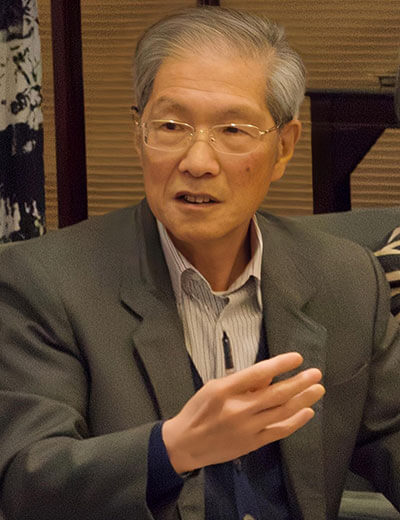 Tao WenzhaoHonorary Member of the Chinese Academy of Social Sciences (CASS); Fellow, CASS Institute of American Studies
Tao WenzhaoHonorary Member of the Chinese Academy of Social Sciences (CASS); Fellow, CASS Institute of American Studies2021 witnessed the end of the free fall of China-US relationship, the start of the "third structuring of China-US relations" as well as the conclusion of its first phase, capped with the two phone conversations and one meeting via video link between the two heads of state, along with several other high-level dialogues.
Why do I say the first stage of the restructuring has been completed? Because regarding strategic framework, the US side made a series of promises, now it hinges mainly on how it behaves. The US have made verbal promises to not seek more conflicts, not let competition become conflict, not to seek a new Cold War, not to seek strengthening of alliances to oppose China, and not to support Taiwan independence, but how it acts is quite another thing. Particularly not to seek to change Chinese systems, which is the most important to the Chinese side, and also the biggest divergence between China and Trump.
If the two sides want to implement the leaders' consensus this year, the least consensus should be for peaceful coexistence, and the main direction is to enhance dialogues and engagement at the "functional level".
-
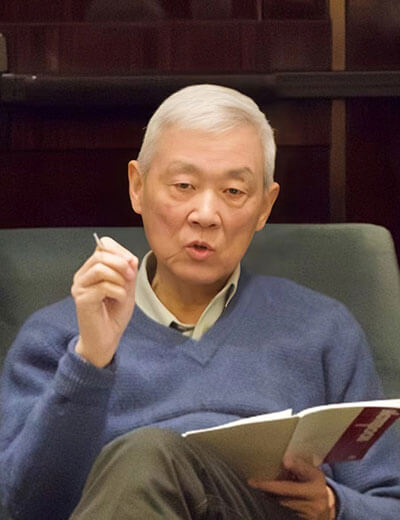 Zhang TuoshengChairman of Academic Committee of Grandview Institute
Zhang TuoshengChairman of Academic Committee of Grandview InstituteSince its inauguration, the Biden administration has not only basically sustained Donald Trump's policy of strategic competition with China, but has tried hard to repair ties with allies in order to suppress China together. Under such circumstances, China-US relations had not improved or stabilized in 2021 as the Chinese side initially expected. Different from previously, however, bilateral international cooperation restored more or less last year, and there was a little more dialogue. China-US relationship saw an end to its previous free fall and entered a state of stalemate.
In 2022, the Communist Party of China's 20th National Congress and US midterm elections, as their respective significant domestic political concerns, may bring new uncertainties to bilateral ties; economically, the trend of semi-de-coupling will continue developing; Taiwan will also remain the greatest security risk for both sides. In addition, both countries will suffer pressure from a downward turn in their economies, and face more international challenges. Only when China and the US strengthen communication and dialogue, constructively manage differences, and promote cooperation in bilateral realms and on significant international and regional hotspots in accordance with the consensus the countries' leaders reached (during their virtual meeting ), can they prevent new retrogression in bilateral relations.
-
 Ni FengDirector, Institute of American Studies, Chinese Academy of Social Sciences
Ni FengDirector, Institute of American Studies, Chinese Academy of Social SciencesChina-US relations have become somewhat peaceful since Biden's inauguration, and the peace has to do with Biden's establishment characteristics - he handles US relations with China in relatively traditional ways. However, beneath such peace there are two worrying points: 1, Biden's strategic competition with China is "systematic"; 2, the US', especially Biden's,perception of China continues deteriorating, getting increasingly negative.
Has China-US relationship found a new pattern? What will the state of the competition be? We should look more into historical experiences for answers. A look back at the historical experiences of past competition between major powers may offer some reference for our understanding of future China-US relations.
-
 Yuan PengPresident, Chinese Institute of Contemporary International Relations
Yuan PengPresident, Chinese Institute of Contemporary International RelationsChina and the US will begin to enter a new historical period of "strategic stalemate" in the next 30 years. The US side also accepts the idea of "stalemate", though they call it "long game". In other words, the two sides' judgments of the basic state of future bilateral ties are generally consistent. Strategic stalemate means: though the US will continue suppressing China, it can't defeat China; though China can stand the US pressure, it can't escape US suppression.
The US wishes to maintain its hegemony in the state of strategic stalemate, and continue winning advantages over China, while China wants to achieve the great rejuvenation of the Chinese nation in the state of stalemate. What China is after isn't to take the US' place, but to build China into a great modern socialist country that is prosperous, strong, democratic, culturally advanced, harmonious, and beautiful, and let the Chinese people enjoy fine lives. Therefore, China's US policy targets are mutual respect, peaceful coexistence, and win-win cooperation, which is why it proposes building a new type of international relations and a community of shared future for mankind.
-
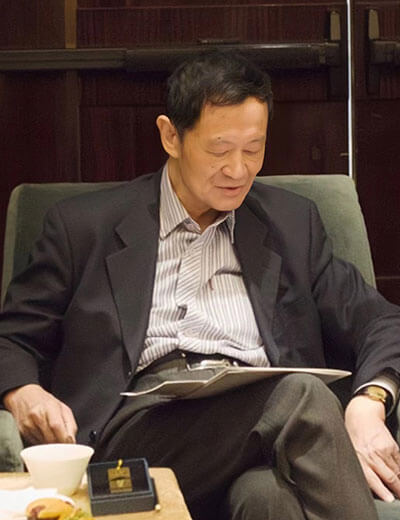 He WeiwenSenior Fellow, Chongyang Institute for Financial Studies
He WeiwenSenior Fellow, Chongyang Institute for Financial StudiesIn the first year of the Biden presidency, China-US relations saw no substantial change in economy and trade as well as science and technology. Unlike Trump, Biden has three handles: 1, politicization of values, especially in Congress legislation; 2, hedging along with allies; 3, scientific and technological suppression. Of which suppression in the field of science and technology is more sophisticated than during the Trump years.
This is because there are three things intolerable to the US: it can't tolerate a China with completely different values and social systems; it can't tolerate such a China to grow increasingly stronger, even stronger than the US in the future; it can't tolerate the international influences of such a China to continue expanding, affecting the US-dominated world order.
All of the Biden government's strategic principles and polices as well as economic and trade, scientific and technological policies regarding China don't suffice to change the development of bilateral trade and bilateral cooperation. While managing to preserve stable economic and trade ties with the US, China should also address its own problems.
-
 Yan XuetongDean of Institute of International Relations, Distinguished Professor of Tsinghua University
Yan XuetongDean of Institute of International Relations, Distinguished Professor of Tsinghua UniversityThere is no substantial significance to discuss whether it is competition, or whether competition is acceptable. For the time being, it is impossible to change the trend of deterioration in bilateral ties.
China-US competition is to a great extent competition in cyber space. Unlike past competition in the spaces of the sea and land, the outcome of contemporary technological progress is competition in the natural and cyber spaces, which is a basic trend.
A big problem for present-day China-US relationship is the tendency of growing hostility between the people of two countries. They have never displayed such dislike toward each other since the ping-pong diplomacy in 1971. No matter what you do, it will be futile unless such a trend changes.
-
 Wang JisiPresident, Institute of International and Strategic Studies, Peking University
Wang JisiPresident, Institute of International and Strategic Studies, Peking UniversityChina-US strategic competition is mainly in core technologies, scientific research and talents, which is most concentrated in three realms: information technology, artificial intelligence, aerospace. With the US as benchmark, technologically, China is lagging behind the US in most fields, running shoulder to shoulder with the US in a few, and has surpassed the US in an extremely small number of areas.
When it comes to talents, 59 percent of the world's top AI researchers are working for American colleges and companies, 11 percent for Chinese ones, and 10 percent for European ones. Of the first 59 percent, 29 percent received undergraduate education in China.
Looking forward, China may assume leading roles in a small number of fields, and show a strong momentum, but in most areas it will continue suffering obvious disadvantages.
-
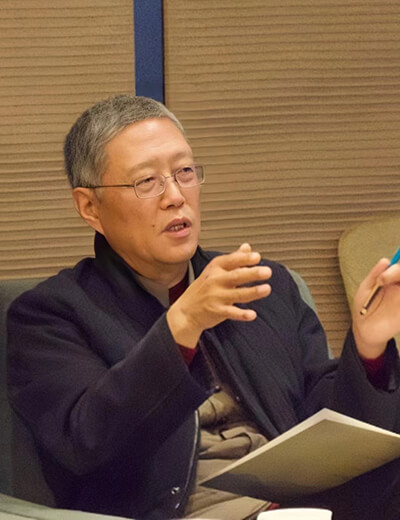 He YafeiChina’s Former Vice Minister of Foreign Affairs
He YafeiChina’s Former Vice Minister of Foreign AffairsThe new year will see geopolitical competition worsen, world economy continue its downward trajectory, the COVID-19 pandemic fluctuate, cyber security risks double, climate change worsen, and international conditions deteriorate. Facing such global challenges, the only way out for China and the US is cooperation. It all boils down to that same old line, "we have a thousand reasons to handle China-US relations well, none to spoil them". Either "Cold War" or "Cold Peace" are deadends.
-
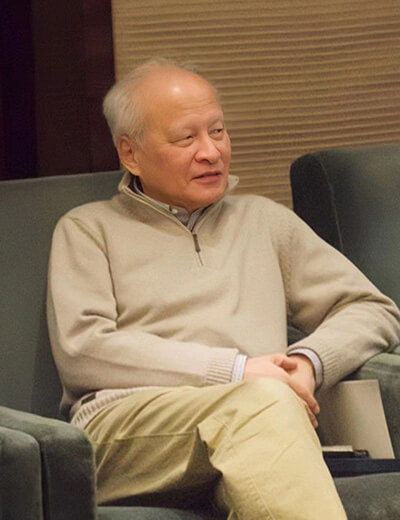 Cui TiankaiChina’s Former Ambassador to the United States
Cui TiankaiChina’s Former Ambassador to the United StatesWhat is crucial between China and the US is to find a way to get along.
Ultimately the US will have no choice but to be pragmatic and find out a way to get along with China, but it will take time. The period of China-US stalemate will be fairly long, but from a historical perspective, it is still in a preliminary stage.
At the end of the day, the differences between China and the US are those between two cultures, two civilizations, even between two races. China emphasizes treating each other equally, and respecting each other, i.e. neither side attempts to fundamentally change the other, cooperate more where their common interests lie, and refrain from zero-sum struggle. The competition between China and the US should be more about who governs its own country better.